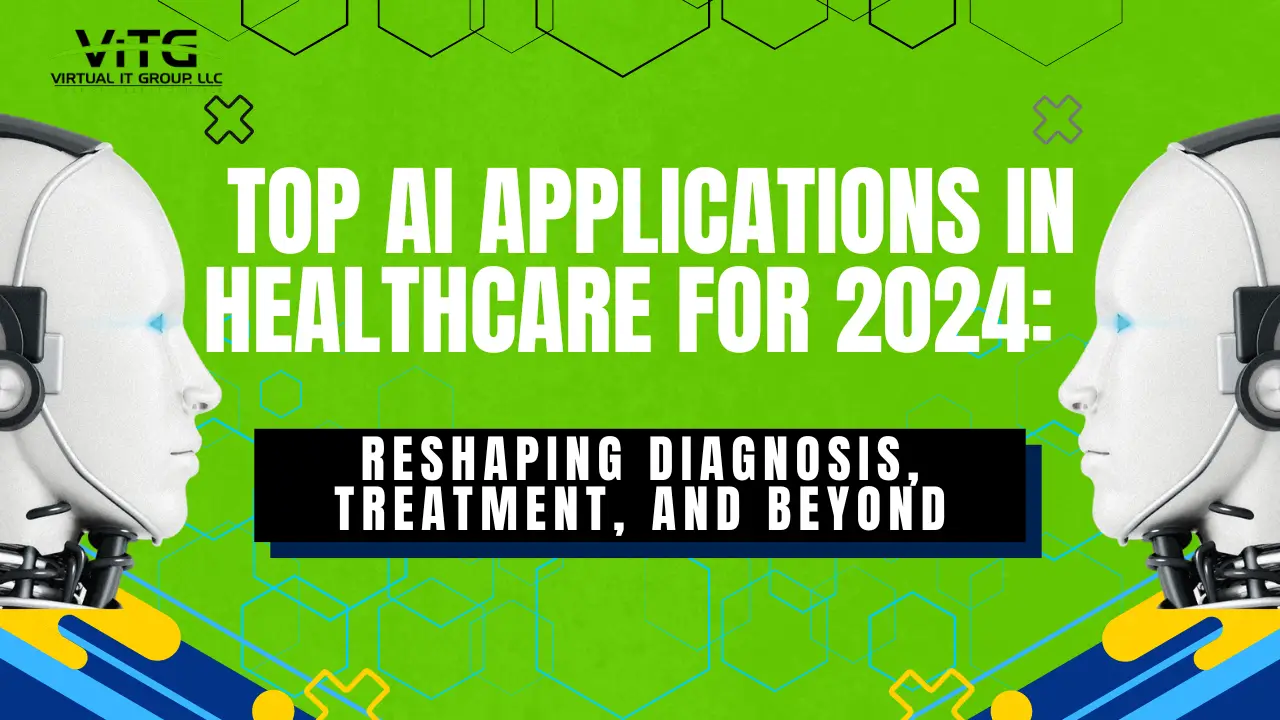Artificial intelligence (AI) is rapidly transforming the healthcare landscape, offering innovative solutions to improve patient care, streamline processes, and enhance clinical decision-making. As we move into 2024, several AI applications are poised to make a significant impact on healthcare delivery:
- Enhanced Medical Imaging Analysis:
- AI-powered image analysis tools are revolutionizing medical imaging by aiding radiologists in detecting abnormalities in X-rays, CT scans, MRIs, and mammograms with greater accuracy and efficiency.
- These tools use deep learning algorithms to find subtle patterns and potential medical issues that might be missed by the human eye, leading to earlier diagnoses and improved treatment outcomes.
- For instance, AI algorithms are being trained to analyze mammograms with high accuracy, potentially reducing false positives and unnecessary biopsies. (Source: National Cancer Institute: Artificial Intelligence in Cancer [invalid URL removed])
- AI is paving the way for personalized medicine by analyzing massive datasets of patient data, including medical history, genetic information, and lifestyle factors.
- This eases the development of personalized treatment plans tailored to each patient’s unique needs and genetic makeup.
- AI also plays a role in drug discovery, analyzing molecular structures and patient data to predict drug efficacy and potential side effects.
- The integration of AI with robotic surgery systems is leading to minimally invasive procedures with enhanced precision and improved safety.
- AI algorithms can guide robotic arms during surgery, providing real-time feedback to surgeons and minimizing human error.
- This technology is particularly beneficial for delicate procedures such as brain surgeries.
- Chatbots and virtual assistants powered by AI can offer 24/7 patient support, answering basic medical questions, scheduling appointments, and providing medication reminders.
- These AI-driven assistants can also alleviate clinician workload by handling routine tasks, allowing them to focus on more complex medical cases.
- AI for Mental Health Management:
- AI-powered tools appear to aid with mental health diagnosis and treatment.
- These tools can analyze speech patterns, facial expressions, and written text to detect signs of depression, anxiety, or other mental health conditions.
- Additionally, AI-based chatbots can offer personalized mental health support, providing users with resources and tools for self-management.
Challenges and Considerations:
While AI offers tremendous potential in healthcare, there are challenges to address:
- Data Security and Privacy: Protecting sensitive patient data is paramount. Robust data security protocols are crucial when implementing AI solutions in healthcare.
- Algorithmic Bias: AI algorithms can inherit biases from the data they are trained on. It’s essential to ensure fairness and inclusivity in the development and deployment of AI in healthcare.
- Regulatory Landscape: The regulatory landscape surrounding AI in healthcare is still evolving. Clear guidelines and regulations are needed to ensure the safe and ethical application of this technology.
The Future of AI in Healthcare
As AI technology continues to advance, we can expect even broader applications in healthcare.
Here are some exciting possibilities for the future:
- AI-powered drug development: Faster and more efficient drug discovery with high accuracy through AI-driven simulations and analysis.
- AI-based clinical trial design: Optimizing clinical trials by using AI to predict patient responses and personalize treatment regimens.
- AI for personalized preventative care: Using AI to analyze patient data and predict potential health risks, allowing for preventative measures and early intervention.
Embracing the Future of Healthcare with Technology
The integration of AI into healthcare presents a transformative opportunity for improved patient care, streamlined processes, and a more efficient healthcare system.
By addressing the challenges and ensuring ethical use, AI can empower healthcare professionals to deliver better outcomes and create a healthier future for all.
Ready to Explore How Technology Can Transform Your Healthcare Operations?
Virtual IT Group can aid healthcare providers in implementing secure and effective AI solutions. We offer expert IT support and services to help your healthcare organization use technology to perfect operations and improve patient care.
Visit our website to learn more about how we can partner with you!


